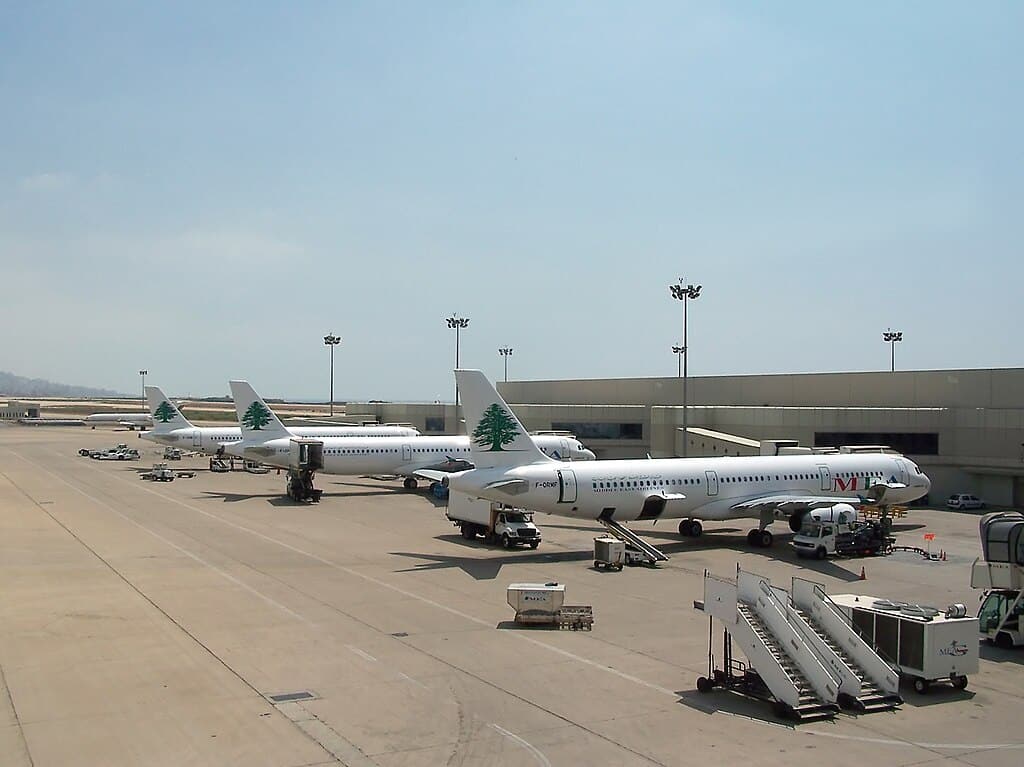Safety fears have been raised at Beirut Airport following an inspection that has brought to the forefront urgent shortcomings in safety measures.
The inspection report draws attention to the shortcomings in air navigation services (ANS) that must be urgently tackled. This encompasses air-traffic control, communication, navigation, surveillance, and meteorological services.
Undertaken by the European Union Aviation Safety Agency (EASA) and the International Civil Aviation Organisation (ICAO) as a pre-audit, the report’s findings emerged from a support mission to Lebanon this June. This mission aimed to offer guidance for the upcoming Universal Safety Oversight Audit Programme (USOAP), slated for the subsequent year. The purpose of such missions is to pinpoint and rectify areas of weakness.
ICAO, recognised as the global standard for aviation safety, consistently undertakes audits of its member states to ensure their competence in upholding rigorous safety oversight systems.
As a signatory to the Chicago Convention, Lebanon is bound to meet the standards and best practices recommended by ICAO. After its maiden audit in 2008, Lebanon underwent four more audits, the latest one being in 2017. Presently, Lebanon’s score stands at 58.5, trailing behind the global average of 69.8.
Should a grave safety concern be recognised during an audit, ICAO has the authority to red-flag any country in violation of global aviation regulations. While these red flags don’t carry any legal mandate, they play a crucial role in alerting other nations, which then independently choose the subsequent course of action, including the potential suspension of flights.
The report pointed out multiple “systemic deficiencies” related to ANS, primarily focused on air-traffic control. The pivotal role of air-traffic controllers in guiding flights safely from take-off to landing can’t be understated. One of the glaring issues highlighted in the report is the staff shortage in ATC, a matter that poses significant risks for Lebanese aviation. As one aviation specialist aptly put it, an overwhelmed controller might inadvertently make errors with potentially devastating outcomes.
The report further emphasised the pressing need for the Lebanese civil aviation authorities to recruit and retain experienced and qualified staff for air traffic services. Another glaring issue is the lack of updated obstacle registries and functionality checks for navigation aids. An expert, after analysing the report, highlighted the crucial role these navigation tools play in aiding pilots.
The report also drew attention to the blurred lines between the regulator, the Directorate General of Civil Aviation (DGAC), and ANS service providers, a situation that raises concerns about conflicts of interest. To potentially alleviate some of the staffing concerns, an expert proposed running the airport for limited hours, a departure from its current round-the-clock operation.
While the deficiency in air-traffic controllers has been a longstanding concern, the current economic crisis in Lebanon has exacerbated the problem. The plummeting value of the national currency and the subsequent socio-economic repercussions have intensified the staffing crisis at Beirut airport.
A source revealed the alarming statistic that currently only 15 air-traffic controllers are certified against a standard requirement of 87. The economic downturn, which saw salaries drastically cut, has spurred many to leave the country. This exodus has resulted in arduously long shifts for the remaining controllers, often stretching 24 hours at a go.
The urgent situation is further complicated by the aging workforce, with an average age of 45. Recruitment locally hasn’t picked up pace, while hiring internationally would strain finances. Furthermore, those in junior positions, such as ground staff or assistants, lack the essential training and certification.
Efforts to address this staffing concern have been made. During a recent interaction with the Public Works Committee, the Caretaker Public Works Minister, Ali Hamie, considered roping in air-traffic controllers from ICAO to mitigate the staff shortfall. However, questions remain on why those who successfully cleared the 2018 air-traffic controller exam haven’t been considered for these positions. Reports suggest that the approvals weren’t granted owing to concerns of a sectarian imbalance in recruitment.
The urgency of the situation is palpable, and the onus is now on Lebanese authorities to act swiftly.



















